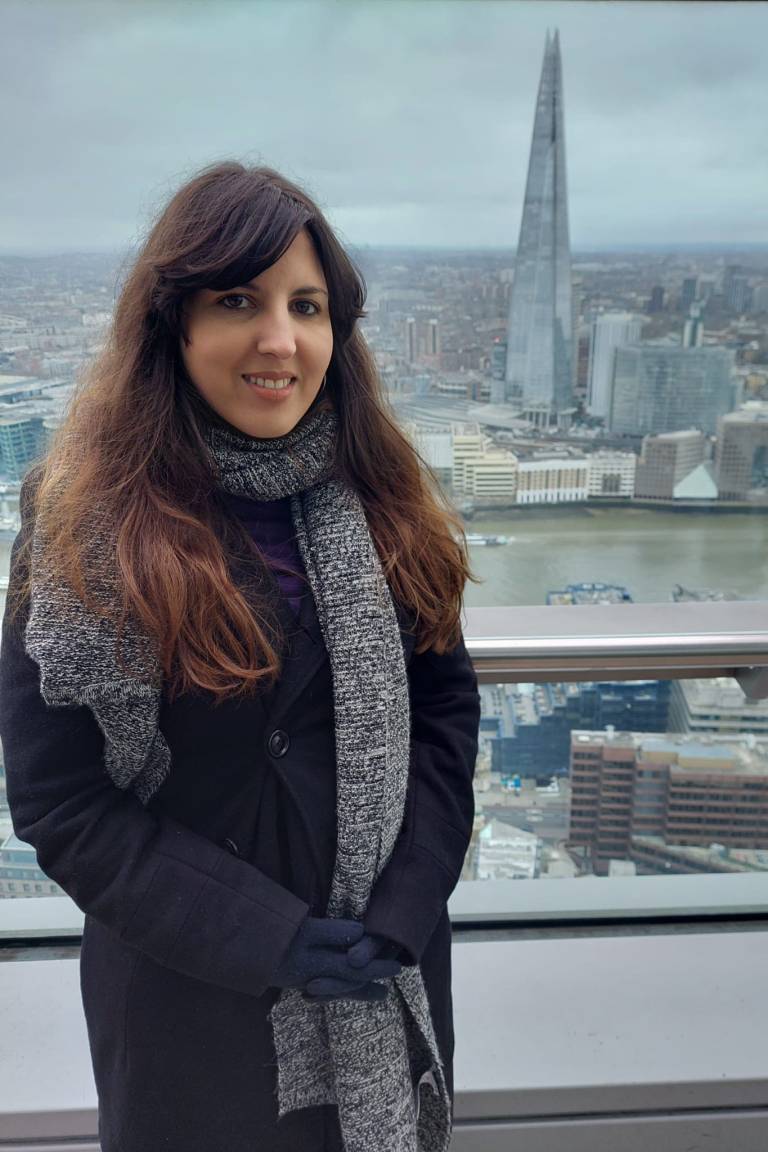Dr Diana Dos Santos Sousa is the Programme Leader of the Early Childhood Education BA and a Lecturer on the Early Years Education MA.
What attracted you to take up your position at IOE?
A head full of dreams of what could be. Before joining IOE, I was a Senior Lecturer in Education at the University of Winchester. At the time, I applied for this post because I wanted to come ‘home’ and give back everything I'd gained through IOE as a student.
The idea of accompanying students who were potentially on a similar educational journey to my own was very appealing. My educational accomplishments emerged from a bit of a struggle to survive, to pay my fees, and to understand the world and the cultural complexities that came with studying in a country that was not my own.
“I felt like I could give something very personal and very human; I could relate, and above all, I could listen to students’ experiences and share my own.
I also wanted to take advantage of the research opportunities IOE offers. I was ‘educated’ to be a researcher at IOE, so I envisioned putting all my research skills into play.
How long have you been at IOE?
On and off, almost 16 years! I first joined IOE in 2007 as a Comparative Education MA student.
Between 2011 and 2017, I completed my PhD at IOE. During that period, I was IOE Student Union President for Finance and Services from 2012-2013, and the Centenary IOE Student Union President from 2013-2014 - the last year before IOE’s merger with UCL.
In 2018, I joined the Early Years Education MA team in my current role.
What do you most enjoy about your position and why?
Students often tell me how inspired they feel.
“I truly believe that if you are in tune with what you are teaching and researching, then that passion passes on to others too.
I love teaching and researching in equal measure. The pleasure I feel when engaging in dialogue with colleagues and students is one of my favourite aspects of the job. Engaging in intellectual stimulation that generates new knowledge is a collaborative process, and I think this becomes mutual.
What working achievement are you most proud of?
I am very proud to have led the development of the new Early Childhood Education BA, which is the undergraduate flagship programme of the Department of Learning and Leadership at IOE.
We now offer a unique international and multidisciplinary degree that emphasises children’s rights, social justice, and early childhood policy and practice, which is taught by world-leading experts in Early Years, Primary Education, and Leadership and Education Policy.
What is the focus of your research and what benefits do you hope your discoveries will bring?
My research entangles a distinct combination between comparative education and early childhood education. It combines a profound interest in education systems, policies and practices around the globe, the examination of dominant discourses within education in general, and the place of democracy in early childhood education.
“By focusing on issues related to democratic culture in early childhood (and all) education, I hope my research raises ethical, critical, and emancipatory possibilities for political and pedagogical practices that empower forms of difference, equity, social justice, freedom, participation, and solidarity.
What's the most important thing you've learned from your students about the subject(s) you teach?
Because I teach a blend of subjects framed on the ideas of critical education and cultural studies - which include democratic (progressive) education perspectives, social justice and reconceptualising early childhood education - every time I am in a classroom with my students, I learn not to make assumptions, to listen to the silences and to be critically aware of marginalisations. This is the most valuable lesson that I learn and re-learn every day.
Everyday I have to reset and as the subjects that I teach incite, check my privilege and my struggles and remember that we all come into the classroom carrying our life experiences with us.
“So, through debates on critical pedagogy and cultural studies, I learn from my students to build bridges and connect from the depths of our personal lived experiences.
Do you think being in London and/or at UCL benefits your work and why?
Yes, absolutely. Being at UCL enables a range of international teaching and research opportunities, which come about because of the reputation of the Institute.
London is a remarkable city, with something for everyone, from fantastic resources like public libraries, museums, and art galleries, to the many significant educational networks one can join to contribute to and develop their own practice.
What might it surprise people to know about you?
Usually, people seem to be surprised when they learn that I'm a plant-based, blues dancer who plays the saxophone!
Last updated 20 February 2023.
 Close
Close


